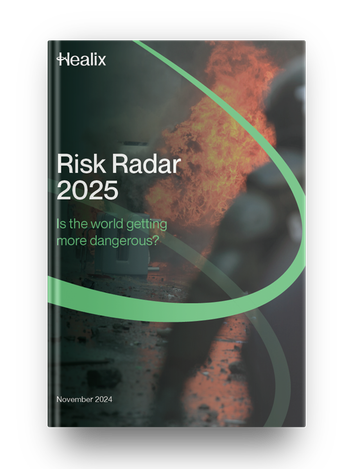Top risk: Governance, regulations and sanctions

Coming in as the third most concerning risk for 2025 is governance, regulations and sanctions.
The role of governance, regulations and sanctions can cover many different fields. For organisations, there is one key question at the top of the agenda – do these processes, measures and systems make it easier or harder to conduct business? With businesses concerned about governance, regulations and sanctions leading into 2025, this suggests organisations believe the stability of business operations could be impeded.
Sanctions have emerged as a tool used by the international order to exert pressure on states without resorting to military intervention. Following Putin’s invasion of Ukraine, punitive sanctions were placed on Russia by numerous international institutions and countries such as the UK, US and EU in an attempt to cripple Russia’s economic might. Russian sanctions topped concerns in our survey, with 23% of respondents citing them as the most impactful on their organisation.
Sanctions are a powerful tool, but they also disrupt global supply chains, forcing businesses to adapt quickly to unpredictable market shifts
While sanctions are intended to weaken adversaries through the targeting of their financial systems, exports and industries, they also have consequences for businesses. Disruptions to supply chains are an intended effect of sanctions; the global energy network had to search for new sources of oil, gas and other commodities following the sanctions on Russia. Similarly, sanctions on Iran have had ripple effects on the global energy market, exacerbated further by recent Iranian involvement in the Middle East conflict and ongoing tensions with Israel.
In this volatile environment, companies must remain agile, adaptable, and prepared for rapid changes in market stability due to changes in governance and regulations. Commodity prices can swing unpredictably, with energy, metals, and agricultural products being vulnerable to external shocks, adding further pressure to business costs and planning. These disruptions are felt most acutely in sectors like manufacturing, energy, and technology.
Economic uncertainty is affecting investment decisions and long-term strategic planning. The unpredictability of government policies, combined with a general breakdown in international cooperation, is making it harder for businesses to forecast risks and navigate regulatory environments.
